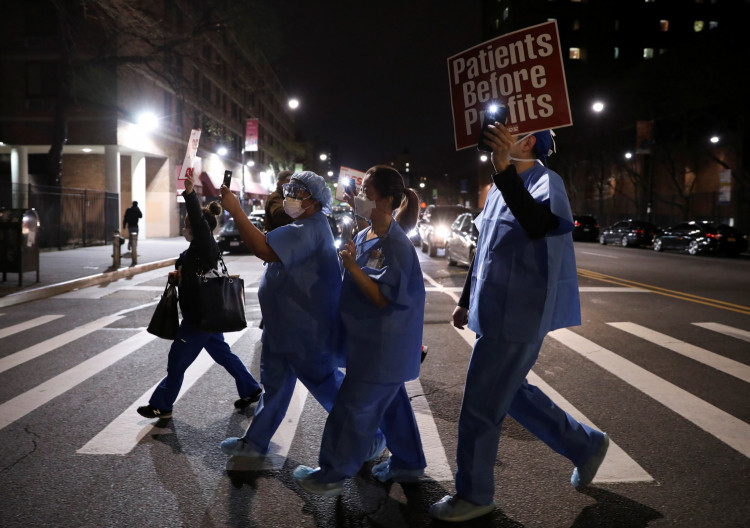The economic plunge and recovery arising from the impact of the COVID-19 pandemic on the United States will be astronomical.
The damage to the U.S. economy arising from the massive business slowdowns and unemployment numbers will be far worse in the short-term compared to the Great Recession of 2008, according to Goldman Sachs. On the other hand, the recovery by the second half of this year has every chance of becoming stronger than anything the U.S. has ever experienced.
Goldman predicts U.S. GDP will likely plummet 35% in the second quarter compared to Q1. It foresees this Q2 GDP plunge will be an 11% drop year-on-year. Both numbers are far worse than anything seen during the Great Recession.
Goldman said its 35% estimated GDP plunge applies to other advanced economies, as well. On the other hand, emerging economies will need much more assistance from the rich world as the coronavirus crisis grinds on.
Goldman predicts the U.S. economic downturn will be four times worse than the housing crisis in 2006. The credit crisis resulting from bursting the housing bubble was a key factor igniting the recession in the U.S. that lasted from 2007 to 2009.
Unemployment is set to skyrocket to an unprecedented 15% compared to only 3.6% in January. The 15% unemployment number will be the highest since World War II, said Goldman Sachs.
The headline unemployment rate in the U.S. might jump to 15% "and even this understates the severity of the situation," said Goldman. The bank noted many U.S. employees will remain out of work and not look for jobs amid the certain reopening of the economy.
Goldman projects Q3 growth to increase 19% from the Q2 plunge. A further 14% jump is predicted in Q4. It said for these glad tidings to occur, federal government policymakers have to continue remaining vigilant and keep their eyes on the COVID-19 pandemic that is the cause of all this suffering.
"At the broadest level, they need to focus on providing all-out support, especially in countries with significant amounts of fiscal and monetary space," said Jan Hatzius, Goldman's chief economist in a note to investors. "Governments need to replace as much as possible of the private-sector income hit, in order to limit the downward pressure on after-tax income and therefore on spending."
Hatzius noted the initial improvement in outlook was mostly policy-driven, but the greater optimism of the past week seems to be at least partly related to the virus itself. He also said "the number of new active cases looks to be peaking globally, projections of cumulative fatalities and peak healthcare usage are coming down, and even actual new hospitalizations in hard-hit New York City have fallen sharply."
Hatzius believes business as usual is unlikely until a vaccine is proven effective. He did, however, say it might be possible to bring back "at least part of the lost output with a sharp increase in testing as well as more limited changes to business practices that lower the risk of infection."






